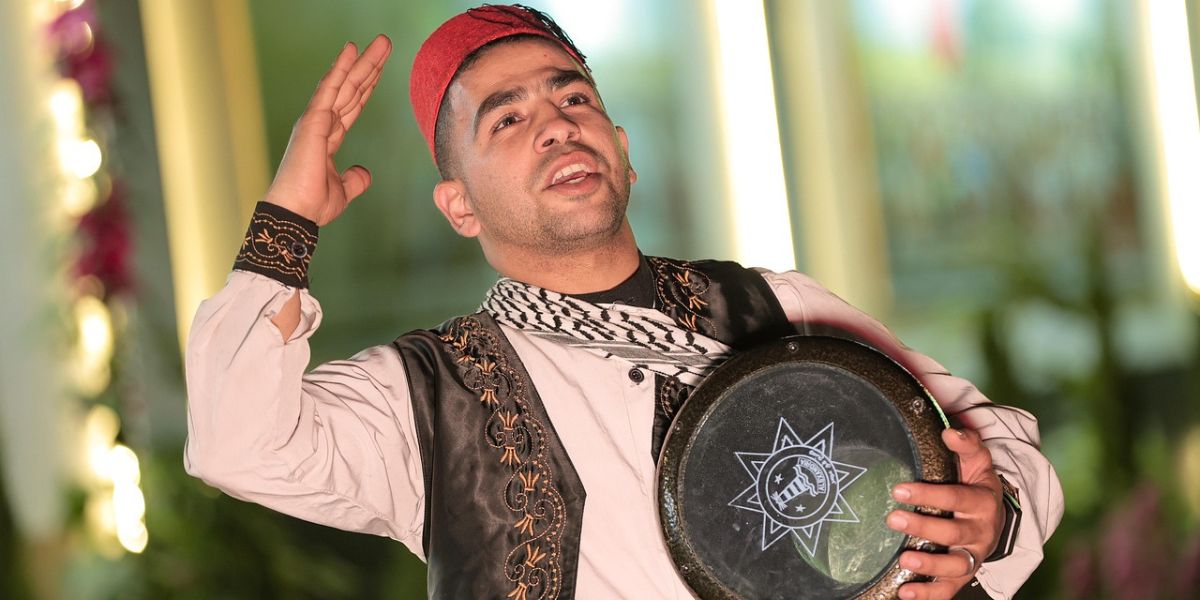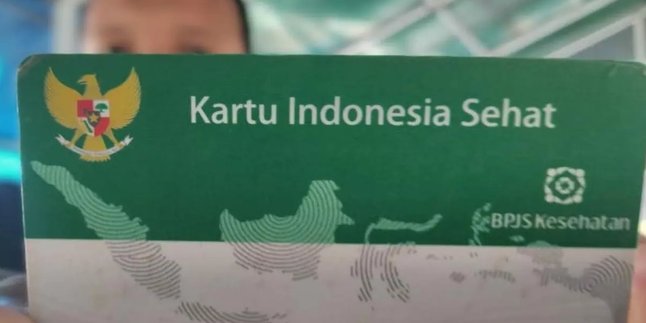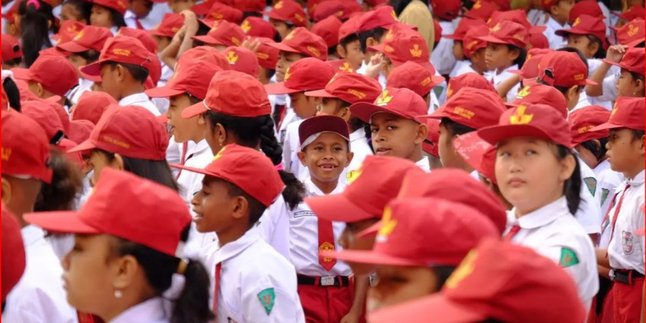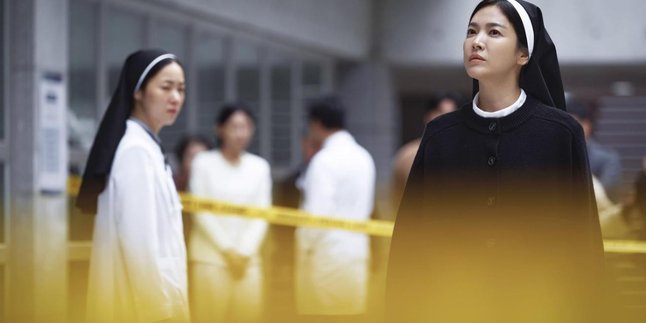Kapanlagi.com - The month of Ramadan always brings a special atmosphere for Muslims around the world, including in Indonesia. From the lively welcome to the warmth at the end of the month, Ramadan is not just a time for worship, but also filled with precious memories.
Various unique traditions passed down since ancient times have become an inseparable part of the charm of this holy month. The grand torch parades and exciting pillow fights are real examples of fun and togetherness that are hard to forget. However, over time, many of these traditions have started to fade due to changes in the era.
In the digital age and increasingly modern lifestyle, the festivities of Ramadan are gradually undergoing transformation. Traditions that were once lively and entertaining are now becoming rarer, especially in big cities. So, which Ramadan traditions are fading from our memory? Let’s explore the explanations below, summarized by Kapanlagi.com on Wednesday (22/1).
1. Torch Parade and Drum Beating Around the Village
Quoting the journal unsa.ac.id titled "The Tradition of Torch Parade Welcoming the Holy Month of Ramadan from the Perspective of Cross-Cultural Communication in the Society of Pontianak City" in the old days, before Ramadan, the community would always hold a torch parade accompanied by drum beats and wooden clappers.
From children to adults, everyone participates in this joy, creating unforgettable moments. Especially during the night of takbir before Idul Fitri, the atmosphere becomes even more vibrant with takbir and the light of torches illuminating the night.
Unfortunately, this beautiful tradition now only remains in a few rural areas, while in urban areas, the torch parade has begun to fade, replaced by the sound of mosque loudspeakers. The loss of this tradition makes many people long for warm and meaningful moments of togetherness.
2. Filling in the Ramadan Agenda Book
According to kalsel.kemenag.go.id, filling in the Ramadan agenda book is a popular habit among students. This book usually records daily worship such as prayers, fasting, and recitation.
With a spirit of competition, students strive to complete their agendas in order to gain appreciation from their teachers, making each page full of meaning.
However, unfortunately, fewer and fewer schools provide this agenda book, causing those beautiful memories to slowly fade from the minds of the current generation.
It is hoped that through this book, students not only learn discipline but also make every act of worship a valuable guide in living life according to Islamic law.
3. Hunting the Tarawih Imam's Signatures
In the festive spirit of Ramadan, children are usually not only busy jotting down in their agendas but also wandering around seeking the signatures of the imam after the tarawih prayers, turning this moment into a joyful social interaction at the mosque.
Unfortunately, this warm tradition is starting to fade with the advancement of digital technology and changes in worship practices. For those who have experienced it, the memories of this activity remain vivid, bringing sweet nostalgia from an unforgettable childhood.
4. Sarang War
In the past, the sarung war was a joyful game for children, who cheerfully rolled up their sarungs and played during ngabuburit or after prayers. The sound of laughter and moments of togetherness filled the air, with no intention to harm one another.
However, unfortunately, this meaningful game is now starting to fade, especially amidst the hustle and bustle of big cities. The shift in children's interests towards the digital world is one of the reasons for the disappearance of this beautiful tradition, making us long for those cheerful times once again.
5. Waking Up for Sahur
In the midst of the blessed atmosphere of Ramadan, the tradition of waking up for sahur with a kentongan, old drums, or makeshift tools becomes a moment filled with joy. Children and teenagers roam the village with enthusiasm, shouting "Sahur... sahur!" that echoes in the night air, uniting the community and fostering a sense of excitement to wake up early in the morning.
However, over time, this warmth of togetherness has begun to be replaced by practical mosque announcements through loudspeakers. Although more efficient, the loss of this precious moment makes the atmosphere of Ramadan feel different, as if something is missing from the beauty of the tradition that has bound the hearts of the community.
6. Walking After Fajr Prayer
After performing the congregational Fajr prayer, walking becomes a joyful and warm Ramadan tradition. Children roam the village, accompanied by their peers, while enjoying the fresh morning air that is still clean before the sun rises.
This activity not only strengthens the bonds of friendship but also serves as a fun way to shake off the drowsiness that envelops them. Unfortunately, with increasing busyness and changes in children's habits, this beautiful moment is now becoming increasingly rare to see.
7. Playing Bamboo Cannons
Bamboo cannons are one of the traditional games that are very popular during Ramadan. Usually, children and teenagers use large bamboo filled with simple fuel to create loud explosive sounds that entertain.
This game is often played during ngabuburit, creating a typical and joyful Ramadan atmosphere. However, for safety reasons and modernization, the tradition of playing bamboo cannons is now becoming increasingly rare.
Quoting ANTARA, for the year 2025, the government has set holiday dates in the month of Ramadan. Referring to the Joint Circular (SEB) of the Minister of Elementary and Secondary Education, the Minister of Religion, and the Minister of Home Affairs regarding learning during the month of Ramadan 2025 on Tuesday, the fasting month holiday will take place in the first week on February 27 and 28 as well as March 3, 4, and 5, 2025.
With this holiday, the old Ramadan traditions that have been absent can be revived as a form of nostalgia.
8. Why are the traditions of Ramadan from the past starting to fade?
The traditions of Ramadan from the past are starting to fade due to lifestyle changes, urbanization, and digitalization that alter how society conducts daily life.
9. Can the traditions of Ramadan from the past still be preserved?
Yes, the traditions of Ramadan can be preserved with the support of the community, family, and government in organizing activities that revive local culture.
10. What are the benefits of preserving Ramadan traditions?
Preserving Ramadan traditions helps maintain the values of togetherness, strengthen social relationships, and provide cultural experiences to the younger generation.
11. Were Ramadan traditions in the past only practiced in rural areas?
No, Ramadan traditions in the past were also practiced in urban areas. However, these traditions were more likely to survive in rural areas due to the still strong collective culture.
12. How to teach the Ramadan tradition to the younger generation?
The younger generation can be taught the Ramadan tradition through family activities, school programs, or community events that involve them directly.
(kpl/rmt)
Disclaimer: This translation from Bahasa Indonesia to English has been generated by Artificial Intelligence.












